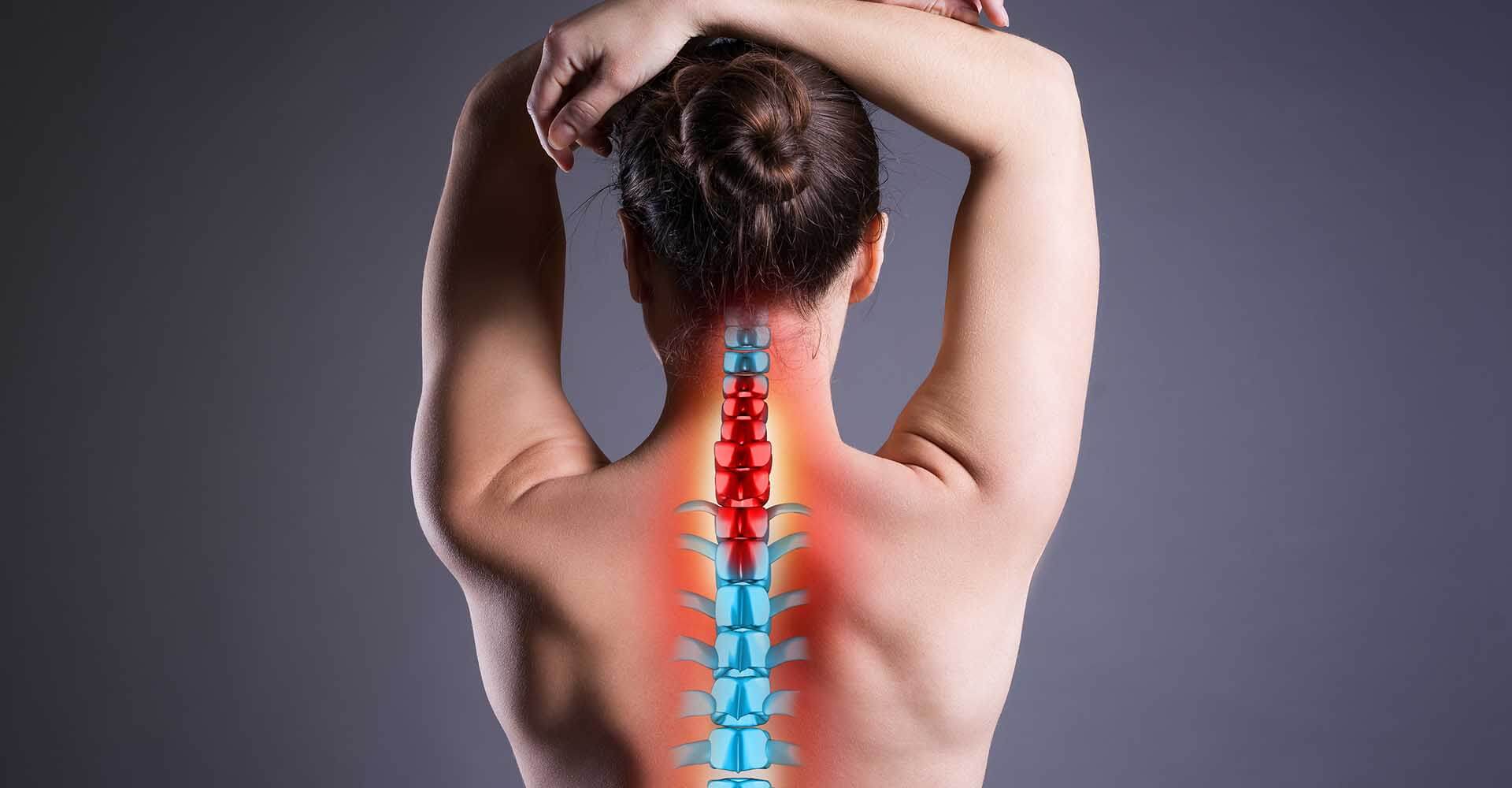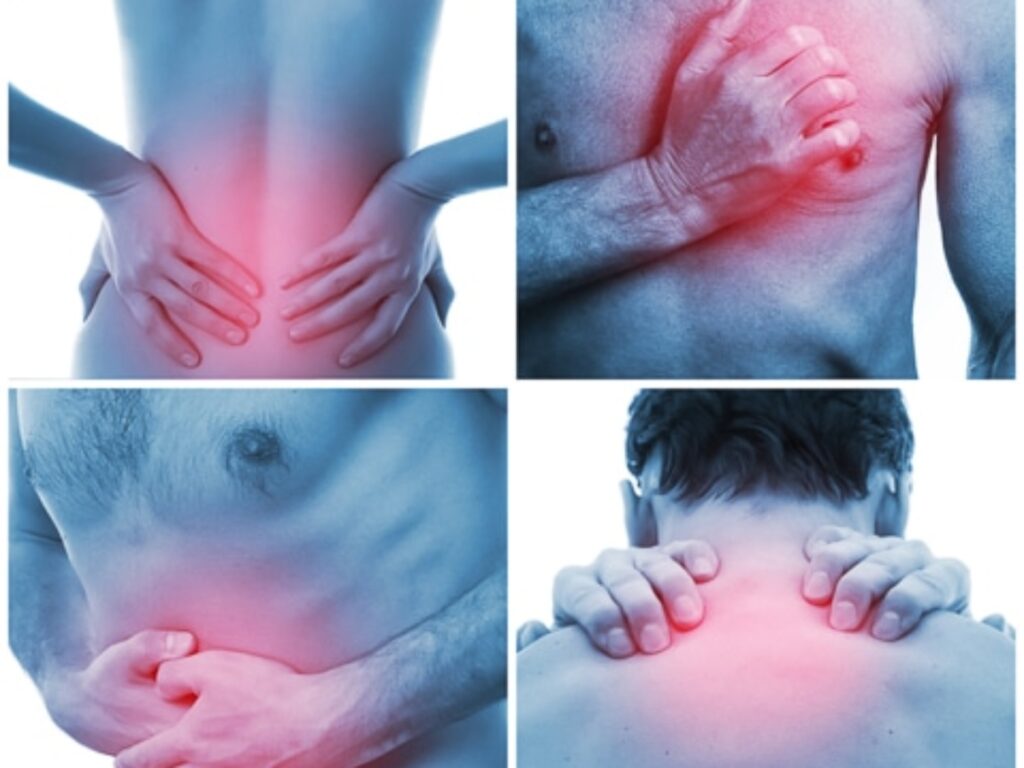Muscle twitching and spasms can be a common symptom of several medical conditions. Muscle twitches are minor, brief, involuntary contractions of one or more muscles that are usually felt in the eyelids, arms, legs and feet. Spasms involve larger muscle groups and tend to be sustained for longer periods of time than twitches. It is important to identify the root cause of the muscle twitching and spasms so that the appropriate treatment can be provided.
#1: Stress
The relationship between stress and muscle twitches is not fully understood, but experts believe that it may be due to an increase in cortisol, a hormone released during times of stress. Rather than just affecting muscles directly, long-term exposure to high levels of cortisol may lead to increased nerve sensitivity which makes the muscle more likely to twitch involuntarily when feeling anxious or stressed out. Other factors such as diet, sleep deprivation or medications might also contribute to this process because they all have an impact on nervous system functioning.
#2: Caffeine Intake
Caffeine, while it has its benefits, can sometimes be over-consumed. Too much caffeine can lead to a variety of problems in the body, ranging from headaches and insomnia to muscle twitching and spasms. Recent studies have suggested that excess amounts of caffeine may contribute to an increase in muscle twitching and spasticity, leading many people to believe that too much caffeine is the reason for these issues.
The amount of caffeine consumed on a daily basis can differ greatly depending on the individual; however, most experts recommend consuming no more than 500mg per day. Additionally, excessive consumption of caffeine has been linked with increased levels of anxiety and irritability as well as increased risk for heart disease and stroke.

#3: Lack of Sleep
Many people experience muscle twitching and spasms throughout their lives, but they may not realize that lack of sleep can be a cause. Studies show that inadequate sleep can lead to an increase in neurotransmitters like glutamate, which is responsible for stimulating muscles and causing them to twitch and spasm.
Furthermore, when we don’t get enough rest at night, our bodies release cortisol, a stress hormone that has been linked to muscle aches or tightness. Low levels of magnesium or calcium due to a lack of sleep can also create involuntary movements in the body.
Sleep deprivation affects more than just our physical health; it also impacts us mentally by affecting our moods and concentration levels. Without adequate rest, we are unable to think clearly or perform basic tasks efficiently.
#4: Medications
Muscle twitching and spasms are common side effects of taking certain medications, but why is this? Medications can cause muscle twitching for a variety of reasons. Some drugs affect the chemical balance in the brain or body which can cause muscles to spontaneously contract and relax.
This can be especially true with psychoactive drugs such as antidepressants, antipsychotics, and stimulants. Other medications that commonly cause muscle twitching are those used to treat high blood pressure, heart disease, epilepsy, thyroid disorders, asthma and some antibiotics. In addition to affecting the brain chemistry these medications also have direct effects on muscle cells causing them to twitch or spasm involuntarily.
For example ACE inhibitors and diuretics used to treat hypertension may lead to an electrolyte imbalance in the body which can then lead to involuntary muscle movements.
#5: Serotonin Syndrome
Serotonin syndrome is a potentially life-threatening condition that occurs when there is an excess of serotonin present in the body. Serotonin is a neurotransmitter, which means it helps to transfer signals between nerve cells in the brain. When too much serotonin builds up, it can lead to symptoms such as muscle twitching and spasms.
The cause of serotonin syndrome varies, but it usually occurs when someone takes two or more medications that act on the serotonin system at the same time. This can be either intentional (e.g., combining multiple antidepressants) or accidental (e.g., mixing prescription medications with over-the-counter medicines). Other causes include overdose of certain drugs, including some antibiotics and antidepressants, and even eating foods high in tryptophan (like turkey).

#6: Amyotrophic Lateral Sclerosis (ALS)
Amyotrophic lateral sclerosis (ALS), also known as Lou Gehrig’s Disease, is a progressive neurological disorder that affects nerve cells in the brain and spinal cord which control voluntary muscle movement. ALS causes muscle twitching and spasms due to the nerve cells’ inability to properly communicate with muscles. As the disease progresses, these twitches become more frequent and intense, eventually causing a complete lack of control over any voluntary movement.
#7: Neuropathy
Neuropathy, or nerve damage, can cause a variety of symptoms including muscle twitching and spasms. Neuropathy is commonly caused by diabetes, but can also be caused by autoimmune diseases such as lupus, HIV/AIDS, and multiple sclerosis. The underlying cause of neuropathy is damage to the nerves that control sensation and movement in the body.
This damage affects how these nerves send signals to the muscles resulting in involuntary twitching or spasming.
When nerve fibers are damaged, they may become more sensitive than normal leading to an increase in electrical activity between the nerve cells and muscles. This over stimulation causes the muscles to twitch or contract uncontrollably which can be uncomfortable or even painful for some people.

#8: Pinched Spinal Nerve
Pinched spinal nerves are a common cause of muscle twitching and spasms. A pinched nerve is caused when pressure is placed on the nerve due to swelling, injury, or age-related degeneration of the spine.
When this happens, it can lead to an electrical signal being sent from the affected area of the spine to the muscles that it supports. This results in involuntary muscular contractions such as twitching and spasms.
The localized twitches that occur in pinched spinal nerves usually happen between two vertebrae of your spine and can be painful for some people. While most cases are minor and do not require any medical treatment, more severe cases may need physical therapy or even surgery in order to relieve the pressure on the affected nerve.

#9: Kidney Disease
Kidney disease can be a debilitating condition, but sometimes the symptoms are hard to detect. Muscle twitching and spasms are two of the most common signs of kidney disease, but many people don’t realize they’re related. It’s important to understand how kidney disease affects your muscles and what steps you can take to minimize its effects.
When your kidneys are not functioning properly, they cannot filter out toxins from your body in a timely manner. As these toxins build up in the bloodstream, it causes cells throughout the body to malfunction. This includes muscle cells which often respond with a twitching or spasm-like sensation that radiates throughout different parts of the body. These sensations can range from mild discomfort to more severe pain depending on the severity of kidney damage.
#10: Dehydration
Dehydration is a common cause of muscle twitching and spasms. When our bodies lack the proper amount of hydration, it can affect the way in which our muscles function. Without an adequate amount of water, muscles can become weak and unable to perform their required tasks. This leads to uncontrolled contractions in the form of muscle twitches or spasms.
When dehydration occurs, electrolytes such as potassium, sodium and magnesium are out of balance. Muscles need these electrolytes to interact with each other so they can carry out their normal functions without interruption. If one or more of these electrolytes are lacking, then your body will experience loss of muscle control resulting in various forms of involuntary contractions including twitches and spasms.
Additionally, if your body lacks enough water for its needs, this may also contribute to dehydration-related muscle twitching and spasms.
Answers You May Want To Know
- Are there any long-term effects to having muscle twitches and spasms as a result of an injury or illness?
At the moment, muscle twitches and spasms are a sign that the body is working hard to heal itself. It can be temporary or it may become permanent, but in the moment they are happening, your body is trying to fix the issue.
If muscle twitches and spasms happen frequently or if they cause pain, it’s important to see a doctor for an evaluation. Muscle twitches and spasms could indicate something more serious like nerve damage.
- Are there any natural remedies that can help me treat my muscle twitching and spasms?
Muscle twitching and spasms are common symptoms of various illnesses, including Parkinson’s disease, Multiple Sclerosis, and Dystonia. Treatment usually involves prescription medications or surgery but there are a few natural remedies that can be tried.
Some of the most common remedies include fish oil supplements, magnesium supplements, calcium supplements, and valerian root extract.
3. What can I do to help relieve muscle spasms and twitches?
There are a few things that you can do to help reduce muscle spasms and twitches:
- Drink plenty of fluids and consume fiber rich foods. These will help to promote regular bowel movements and reduce constipation.
- Take supplements like magnesium or gelatin. These can help improve nerve function and reduce muscle spasms and twitches.
- Get enough sleep. Lack of sleep often leads to muscle spasms and twitches. Practicing yoga or another form of meditation can also help improve the mind and ease muscle spasms and twitches.
4. Is it possible to permanently fix my muscles so that they no longer twitch or spasm?”
Yes, it is possible to permanently fix your muscles so that they no longer twitch or spasm. Muscle twitching and spasms are due to a neurological problem called myotonia congenita – a disorder in the nervous system that causes the muscle tissues to become excessively twitchy and misshapen. There is currently no cure for myotonia congenita, but treatments include medications and surgery. If you experience muscle twitching or spasms, consult your doctor as soon as possible to get started on the right treatment plan.
- How can I reduce the frequency and severity of muscle twitching and spasms?
There is no specific cure for muscle twitches or spasms, but various treatments may help in reducing the frequency and severity of these symptoms.
Some things that you can do to reduce the incidence of these symptoms include: exercising regularly, eating a balanced diet, supplementing your diet with magnesium supplements, and drinking plenty of water.
Make sure to get medical attention if the muscle twitch or spasm happens suddenly or becomes very severe.
You May Also Like
Top 10 Rules of Aesthetic Bodybuilding: Learn From best Physique Hollywood Actors
Top 10 Most Famous Aesthetic Bodybuilders of All Time
The Rock vs Phil Heath Bodybuilding: The Two Biggest Bodybuilders
Top 7 Muscular Women on Instagram You Need to Follow



